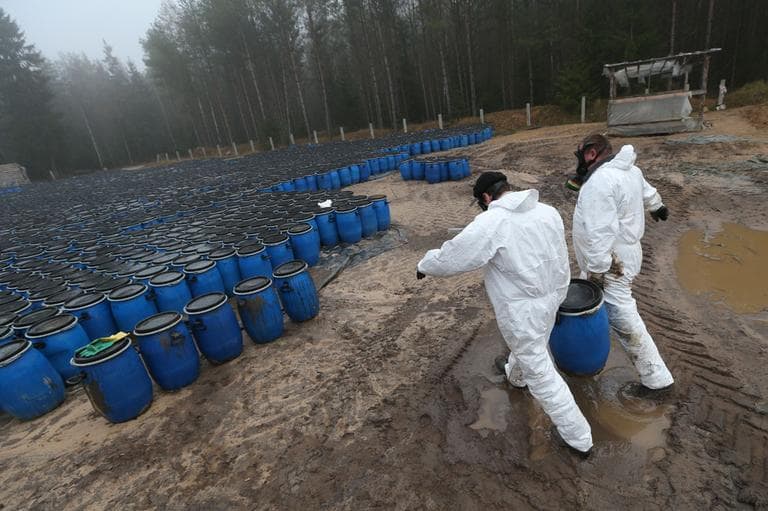Advertisement
The Global And Growing Use Of Pesticides
ResumeWe look at the huge and growing global use of pesticides, at implications and alternatives.

We use billions of pounds of pesticides globally as a weapon to control weeds, and to kill the bugs that infect our crops and spread diseases. Five billion pounds in 2007, and even more today. They coat our produce, keep our lawns weedless and green, keep diseases like malaria in check.
But many are carcinogens. They’ve been linked to depression, birth defects, ADHD, Diabetes, even Parkinson’s. Now, scientists are looking for a better way.
This hour, On Point: we look at the growing global use of pesticides, and the implications and alternatives.
Guests
Erik Stokstad, staff writer for Science. He was part of the news team behind this month’s special issue on the global use of pesticides. (@erikstokstad)
Edwin Rajotte, professor of entomology at Penn State. (@edrajotte)
Brenda Eskenazi, professor at the school of public health at the University of California Berkeley.
From Tom's Reading List
Science: The Pesticide Paradox -- "Although science is guiding some policy changes, there is still room for major improvement when it comes to pesticides, by more carefully tracking their effects, using them more judiciously, reducing their negative impacts, and finding alternatives. Scientists are making strides in precisely understanding the effects of the chemicals now in our arsenal, including the myriad ways in which they are broken down in the environment and the harm they cause to wildlife. Meanwhile, cohort studies in the United States are beginning to map out their troubling effects on the young developing brain."
Science: The War Against Weeds Down Under — "Weeds will often become resistant to a specific herbicide while remaining vulnerable to others with different modes of action. Thanks to the weak concentrations that farmers were applying, however, ryegrass evolved a kind of cross-resistance that allowed it to rapidly break down a wide variety of herbicides. The mechanisms behind this are not fully understood. But it meant that Australian farmers lost four classes of herbicides in a matter of years. 'They are absolutely cursed with the worst scenario you could come up with,' says weed scientist David Shaw of Mississippi State University."
The Hill: EPA turns to pesticides to protect bees from colony decline -- "Federal officials have developed new labels to warn users that some pesticides may kill honeybees. The measure from the Environmental Protection Agency is intended to combat a sharp decline in bee populations, known as colony collapse disorder, that has far-reaching effects on global agriculture but has remained somewhat of a mystery to scientists and federal regulators."
This program aired on August 29, 2013.